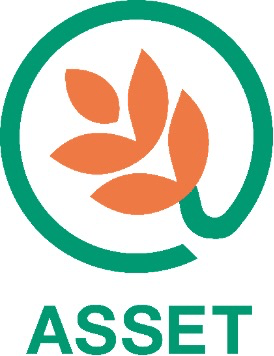The agricultural sector in Southeast Asian countries is at a crossroads between agricultural models based on Green Revolution and innovative agroecological systems. The intensification of conventional agriculture is leading to a simplification of agricultural landscapes, land degradation and biodiversity depletion, and increased health risks for farmers and consumers.
A main challenge for the research and development community is to support transitions from a relatively standard and simple Green-Revolution model of intensification, to a mosaic of diversified production models (agroforestry, crop-livestock integration, crop diversity, conservation agriculture, etc.) with increasingly diverse and strengthened connections to safe food systems, including domestic and export value chains.
A shared vision of Agroecology and Safe food System

The ASSET project aims to develop and promote a shared vision of Agroecology and Safe Food System Transitions in Southeast Asia through a comprehensive approach that includes research, networking, policy advocacy, capacity development, awareness-raising and communication.
The project will build upon:
- Research for development processes in synergy with the regional research platforms, ASEA and MALICA
- The Agroecology Learning Alliance in Southeast Asia (ALiSEA)
- The ASEAN Lao facilitated Initiative for regional Coaching of Agroecological transition in Southeast Asia (LICA)
The project will engage with governments, civil society and the private sector (including small producers) to generate and transform knowledge into sustainable innovation processes and transformative policies, with a focus on youth and gender equality.
Coordinated by GRET in close collaboration with CIRAD, which is in charge of scientific coordination, the project will mobilise the expertise of 27 national, European and International partners from research institutions, universities, NGOs and Ministries of Agriculture in the four countries.
Project objective
- To make food and agricultural systems in Southeast Asia more sustainable, safer and inclusive, by harnessing the potential of agroecology.
- This will be achieved through strengthening and synergising initiatives contributing to Agroecological and Safe food System Transitions (ASSET) from local to regional levels (South-East Asia regional network partnerships – ALiSEA).
The subcomponents of the project
- Strengthening ALiSEA through networking and sharing a common vision: capacity-building of the ALiSEA network in terms of visibility, communication and influence (Board of Members, National Secretariats)
- Transforming ALiSEA multimedia tools into a knowledge hub: Database management, Geographic Information System Mapping, partnering with other regional initiatives
- Promoting ASSET through capacity-development, communication and visibility actions: Webmaster, video & social media, e-learning, training, etc.
- Knowledge production and support for innovations: Flagship sites supporting territorial, transdisciplinary approaches to innovation
- Methodological framework for assessing performances and impacts of innovations and transitions: Theory of Change, impact monitoring, etc.
- Evidence-based policy dialogue and advocacy: Support for policy dialogue and advocacy at multiple levels from local to regional level.
Expected results
- ALiSEA becomes a fully autonomous member-managed network and knowledge hub supporting Agroecology and Safe food System Transitions.
- Innovation processes at territorial level are strengthened in flagship sites in the four countries;
- Robust evidence on agroecological system performances, impacts and its condition of development inform scaling-up strategies and political processes on larger scales;
- Policy dialogue on agriculture, food and trade at national and regional levels (notably ASEAN level) is fostered and strengthened to better integrate sectorial issues and support ASSET.
